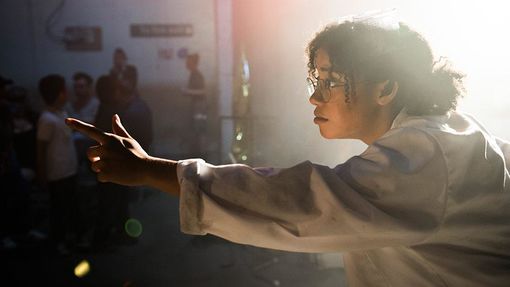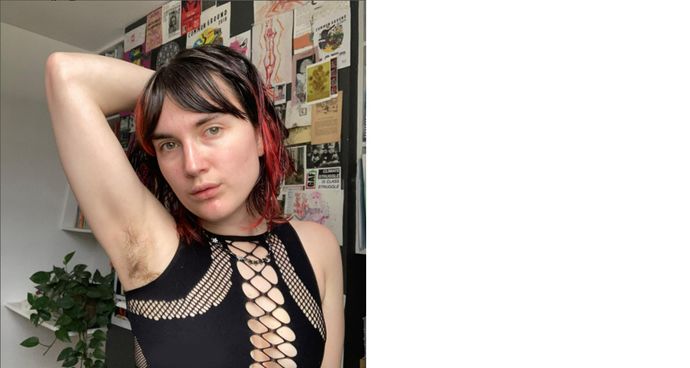
Today we are speaking with Eden Rickson, a current student on the Drama, Applied Theatre and Education, BA student about her placement at the Brit School and exploring the taboo topic of body hair with young people.
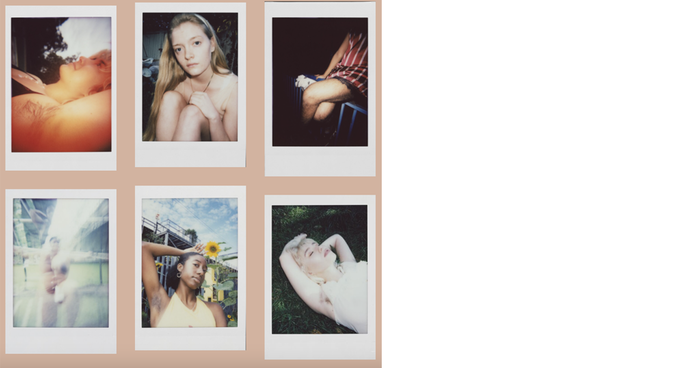
How did you get involved with working with the Brit School?
I independently approached The BRIT School, asking to do a placement there as part of my 3rd year training on the Drama, Applied Theatre and Education, BA course at Central.
What made you want to get involved?
I was passionate to explore the taboo topic of body hair with young people. This was inspired by a project Farah Essett and I authored for The Wellcome Collection in 2021, My body, my hair. We photographed and interviewed a range of young people growing out their body hair in lockdown 2021.
We live in a world with incredible pressure to conform, where the beauty industry makes millions from targeted body-shame. (The average woman spends ten thousand dollars and nearly two entire months of her life managing unwanted hair). Thus, conversations around our body hair can be vulnerable and sensitive. However, applied theatre is an empowering creative medium to explore and stage these stigmas and pressures.
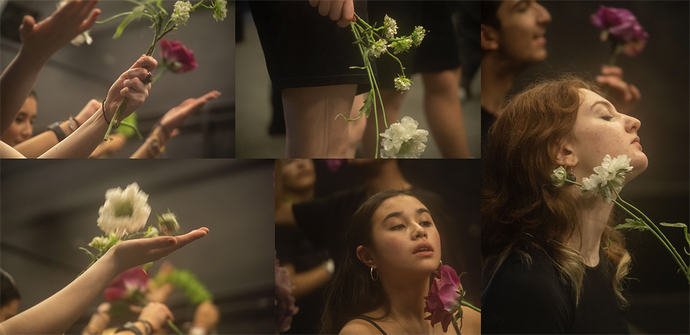
What have you been getting up to?
I directed a piece of theatre with nine young people interested in using performance to explore their own relationship to their body hair. A student reflected, ‘At first it felt quite overwhelming speaking so personally about this topic that I really wasn’t that comfortable with – but as we got closer, I felt so empowered to share these personal stories.’
In session one, I shared the Polaroids of body hair with the students. We explored our responses and reflected on our own experiences of puberty and body shame. Exploring these feelings, the students experienced a shared anger toward the beauty industry that they wanted to express in the performance. Inspired by this, I asked the students, if anything could happen in the show we create, using your wildest imagination, what would that be? A student suggested that we have a piñata hanging from the ceiling shaped like a razor, and then destroy it! I then built this piñata, and the end of the show became this dramatic moment of release for the participants.
As the students used performance to share their personal experiences, they discovered an empowering physical language and collective voice by which they could challenge the beauty industry.
When performing, the students got to share their truth. As one student reflected, ‘it gave me a way to express myself and my feelings and talk about what I’ve been through with body hair.’
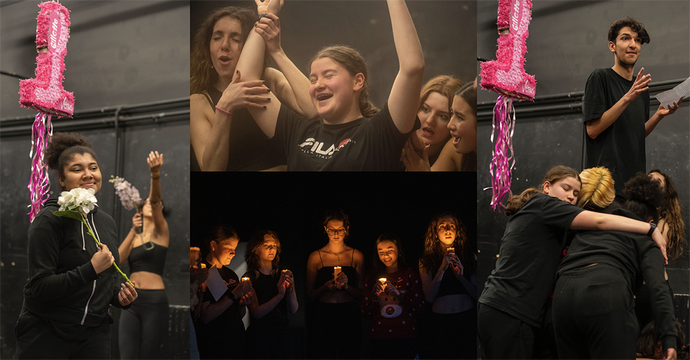
Can we access the performance of ‘Body Hair’ that you did at The Brit School?
Yes! You can access the trailer for ‘Body Hair’ below on YouTube. Navigating gender, beauty standards, intimacy, and sexism, the performance uncovers powerful personal stories about body hair.
How is this placement related to your course work?
I am writing my dissertation about this process, investigating the impact of applied theatre to explore body hair within our shaming system.
What has surprised you most about your experience?
I was witness to the power of the student’s intimate stories and experiences, the power of their truth, in the sanctuary of the rehearsal room. Our body hair is a largely private narrative, a stigmatised and taboo topic, whilst the billion dollar beauty industry and its expectations harm all of us.
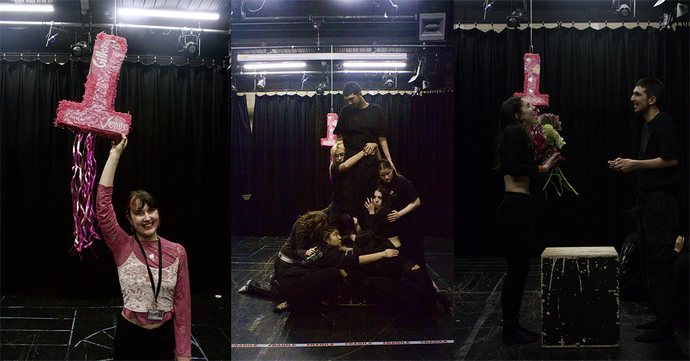
How did you find out about Central and decide to study with us?
I actually studied at The BRIT School and my teachers there recommended that I look into studying at Central.
What are you planning to do after graduation?
I plan to bring this project to more educational settings, where the impact of our profit-hungry beauty industry is rarely discussed. The power of this model of economical and ecological performance is that it can be a vehicle for education, a travelling show performed in schools across the country, a springboard to start discussions of body hair across the UK.
Update from Eden - 16 November 2022:
From gender to beauty standards to pain to sexuality, the student’s individual voices formed the passionate and political heart of the performance. One student reflected: ‘Being able to write a monologue really helped me establish a fond connection to my own body hair.’
And another, ‘Hearing everyone being impacted by their body hair really helped me to create a sense of community and realise that I’m not alone in the struggle.’
And another, ‘It really opened my eyes to how much body hair affects me being non-gender-conforming.’
And finally, ’ I don’t want to be neutral with my body hair, I want to make a statement, and empowered me to do that, especially through writing my own piece.’
Creating this play required visioning a new world that challenged body shame, and radically staging what has been hidden and stigmatised. This is especially powerful in the context of body hair, a taboo topic that, rather than be seen as natural and beautiful, has been seen as ‘a sign of sexual, mental and criminal deviance’ (Herzig) throughout history. This show became a staging of resistance and a language of beauty and aesthetics developed as the piece formed.
This began with an idea from the students, suggesting that ‘Hair and flowers grow from the floor and walls as the piece goes on into a beautiful hairy forest of lands of different colours of hair, textures!’ This idea formed the setting, allowing a strong metaphor of body hair representing nature to emerge. The students created a beautiful and imaginative stage of wildness, creating an alternative reality to the ‘age-old system [of body shame] whose roots and pockets are deep’ (Renee Taylor).
Creating this play came out of a system of body-shame - however it was an experience of joy, reclamation, play and freedom, allowing the students to destroy a system that has shamed them, one pinata at a time!
References:
Herzig, R. (2016) Plucked: A History of Hair Removal. New York University Press. New York.
Taylor, S. (2018) The Body Is Not An Apology: The Power of Radical Self Love. California.
Berrett-Koehler Publishers Inc.
Keep up to date with Eden’s work by following her on Instagram @edenrickson, Twitter @edenrickson
Visit Farah and Eden’s Hairy Godmother Website
Read Farah and Eden’s written piece for The Wellcome Collection, My body, my hair


